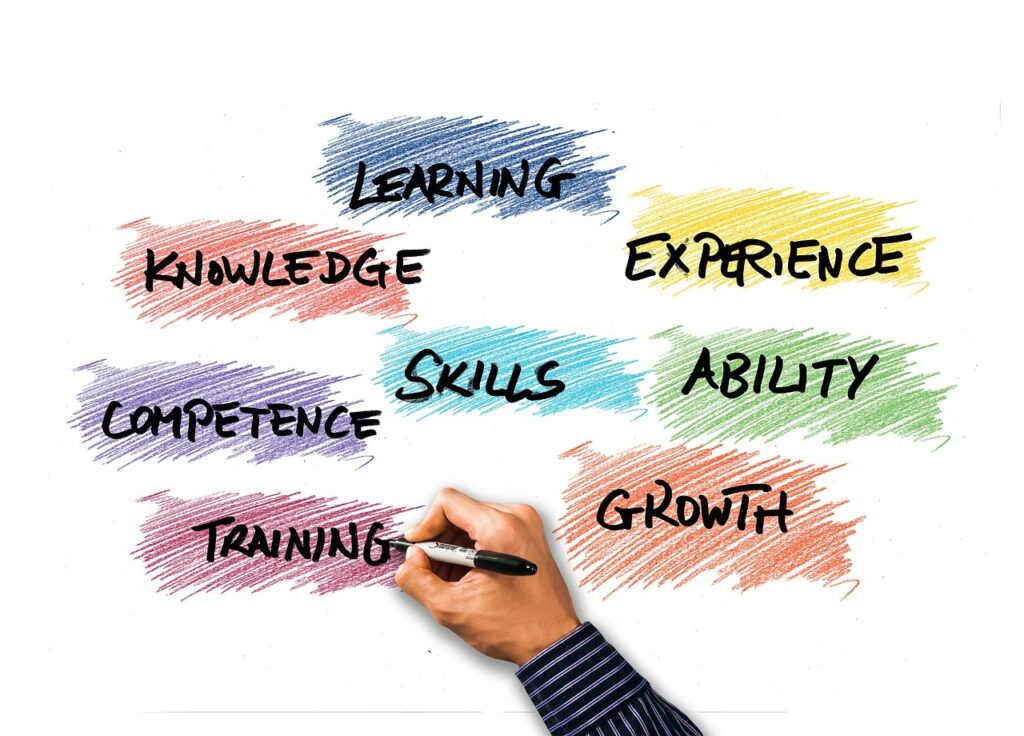Data analysts are more important than ever before, and developing data analysis skills can help you in many professions. Learning and knowing these skills play a crucial role in transforming raw data into valuable insights, driving decision-making processes across industries. To remain competitive and relevant, it is essential for data analysts to stay updated with the latest trends and skills. We’ll provide an overview of the top data analyst and data analysis skills expected to be in demand in the coming years, including both technical and soft skills, to help you prepare for the future of the profession.
Platforms and Schools To Learn Data Analyst Skills

Data Analytics Programs from Western Governors University
BS in Data Analytics; MS in Data Analytics

Data Analytics Bootcamp from Full Stack Academy
Online Data Analytics Bootcamp

Data Analytics Courses from Coursera
Data Analytics Degrees, Certificates, and Courses.

Data Analytics Courses from edX
Data Analytics Professional Certificates and Courses.
Technical Skills for Data Analysts
For data analysts to excel in their roles, they need to possess a diverse range of technical skills. These skills encompass various aspects of data analysis, from coding and programming languages to big data technologies and machine learning.
Coding and Programming
Proficiency in coding and programming languages like Python, R, and SQL is essential for data analysts. These languages enable them to manipulate, analyze, and draw insights from large data sets. Python and R are popular choices for data analysis, while SQL is commonly used for querying databases.
Statistical Analysis
Having a strong foundation in statistical analysis is crucial, as it allows for the understanding of basic statistical concepts and the application of statistical techniques for data analysis. This enables professionals to make informed decisions based on data and identify patterns and trends.
Data Visualization
Data visualization tools, such as Tableau, Power BI, and Google Data Studio, are vital for creating clear and engaging visual representations of data. These tools help data analysts to convey complex findings to non-technical audiences in an easily digestible format.
Big Data
As the volume and variety of data grow, big data technologies like Hadoop, Spark, and NoSQL databases have become increasingly important. These technologies facilitate the processing and storage of massive amounts of data, allowing analysts to work with larger and more complex data sets.
Data Cleaning
Data cleaning is another essential skill in the data analysis process. Ensuring accurate analysis requires the identification and correction of errors in datasets. By mastering various techniques for data cleaning, professionals can improve the quality of their analyses and generate more reliable results.
Machine Learning & AI
Machine learning and artificial intelligence techniques are also becoming more prominent in the field of data analysis. Tools such as TensorFlow, Scikit-learn, and neural networks enable data analysts to build predictive models and uncover hidden patterns within data.
Cloud Computing
Finally, cloud computing platforms like Amazon Web Services (AWS), Google Cloud Platform, and Microsoft Azure have transformed the way data is stored and processed. Data analysts need to familiarize themselves with these platforms to efficiently manage and analyze data in the cloud. Additionally, data wrangling and preprocessing tools such as Excel, Pandas, and DataRobot are crucial for cleaning and preparing data for analysis.

Soft Skills for Data Analysts
While technical expertise is crucial, data analysts must also possess a strong set of soft skills to complement their technical knowledge. These skills include critical thinking, communication, creativity, and time management.
Critical Thinking
Critical thinking and problem-solving abilities are fundamental for data analysts. Identifying patterns and trends in data, evaluating the quality of data sources, and developing insights and recommendations are all essential tasks that require a keen analytical mind.
Communication
Effective communication is another key soft skill for data analysts. They must be able to present their findings to non-technical audiences in a clear and concise manner, collaborate with cross-functional teams, and write comprehensive reports that accurately convey their analyses.
Creativity
Creativity and innovation play a significant role in data analysis as well. Data analysts need to explore new ways to analyze and visualize data, adapt to new tools and technologies, and generate fresh ideas and solutions to stay ahead in the rapidly evolving field.
Time Management and Organizational Skills
Lastly, time management and organization skills are vital for data analysts to succeed in their roles. They must prioritize tasks and projects, balance multiple deadlines, and maintain a high level of productivity to ensure their work is completed efficiently and effectively.
Developing Data Analysis Skills
For non-traditional students and adult learners, one way to develop data analysis skills is through online courses and tutorials. Platforms such as Coursera, edX, and LinkedIn Learning offer a wide range of data analysis courses, catering to various skill levels and interests.
Attending workshops and bootcamps can also provide a hands-on learning experience, which is particularly valuable for mastering practical skills in data analysis. When choosing a workshop or bootcamp, it’s essential to research reputable providers and consider factors such as the curriculum, instructors’ expertise, and post-program support.
Networking and staying updated with industry trends are vital for long-term success in data analysis. Attending relevant events and conferences can offer valuable insights and connections within the field. Professionals can also leverage social media platforms and industry-specific groups to discover and participate in these events.
Lastly, applying data analysis skills in real-world projects is an effective way to develop and enhance one’s expertise. Taking on practical projects, such as analyzing publicly available datasets or collaborating on open-source initiatives, can provide valuable hands-on experience and demonstrate one’s proficiency in data analysis to potential employers.

Continuous Learning and Adapting To An Evolving Industry
In the field of data analysis, continuous learning and adaptability are crucial for staying relevant and competitive. To keep up with industry trends and developments, data analysts must commit to lifelong learning and skill development.
Participating in online courses and earning certifications can be an effective way to stay current with the latest tools, techniques, and best practices in data analysis. Many reputable organizations offer courses and certifications that can enhance your skillset and increase your marketability as a data analyst.
Networking with other professionals in the field can also provide insights into new trends and opportunities, as well as foster collaboration and knowledge sharing. Engaging in professional communities, attending conferences, and joining online forums can help you stay connected with your peers and learn from their experiences.
Balancing technical and soft skills is essential for data analysts. Recognizing the value of both types of skills in their roles, analysts should strive to develop a growth mindset and embrace challenges. By continuously refining and expanding their skill sets, data analysts can position themselves for success in the ever-evolving world of data analysis.
Finally, embracing new challenges and opportunities for growth is essential for continuous improvement. By taking on new projects, experimenting with new technologies, and pushing the boundaries of your expertise, you can expand your skillset and stay ahead in the rapidly changing world of data analysis.
Showcasing Your Data Analysis Skills
Once you have developed a strong foundation in data analysis, it’s important to effectively showcase your skills to potential employers. There are many ways to do this. We’ll explore three ways you can achieve this.
Creating a data analysis portfolio is a powerful way to demonstrate your expertise. To curate an impressive portfolio, consider including a variety of projects that highlight your proficiency in different data analysis techniques and tools, as well as showcasing your ability to communicate insights clearly and concisely.
Obtaining widely recognized certifications and badges, such as the Microsoft Certified: Data Analyst Associate or the Google Data Analytics Certificate, can further enhance your credibility in the field. These certifications not only validate your skills but also signal your commitment to continuous learning and professional growth.
Finally, highlighting your data analytics skills on your resume and LinkedIn profile is essential for capturing the attention of potential employers. Ensure that your resume and LinkedIn profile clearly articulate your expertise in data analysis, and consider providing specific examples of projects or accomplishments that showcase your skills. By effectively presenting your data analysis skills, you can unlock new career opportunities and achieve your career goals.
Conclusion
In summary, the top data analyst skills in 2024 encompass a wide range of technical and soft skills, such as coding languages, data visualization tools, big data technologies, machine learning, critical thinking, communication, and creativity. As the field of data analysis continues to evolve rapidly, continuous learning and adaptability are essential for staying current and competitive in the industry.By pursuing lifelong learning and career advancement opportunities, you can ensure that your skills remain relevant and in demand. As you work towards enhancing your data analyst skills, remember that our mission at Pathways2Advancement is to provide guidance and support to adult learners and non-traditional students, helping you to reach your career goals through affordable and relevant education options. Embrace the journey of continuous professional growth, and unlock the full potential of your data analysis career.


